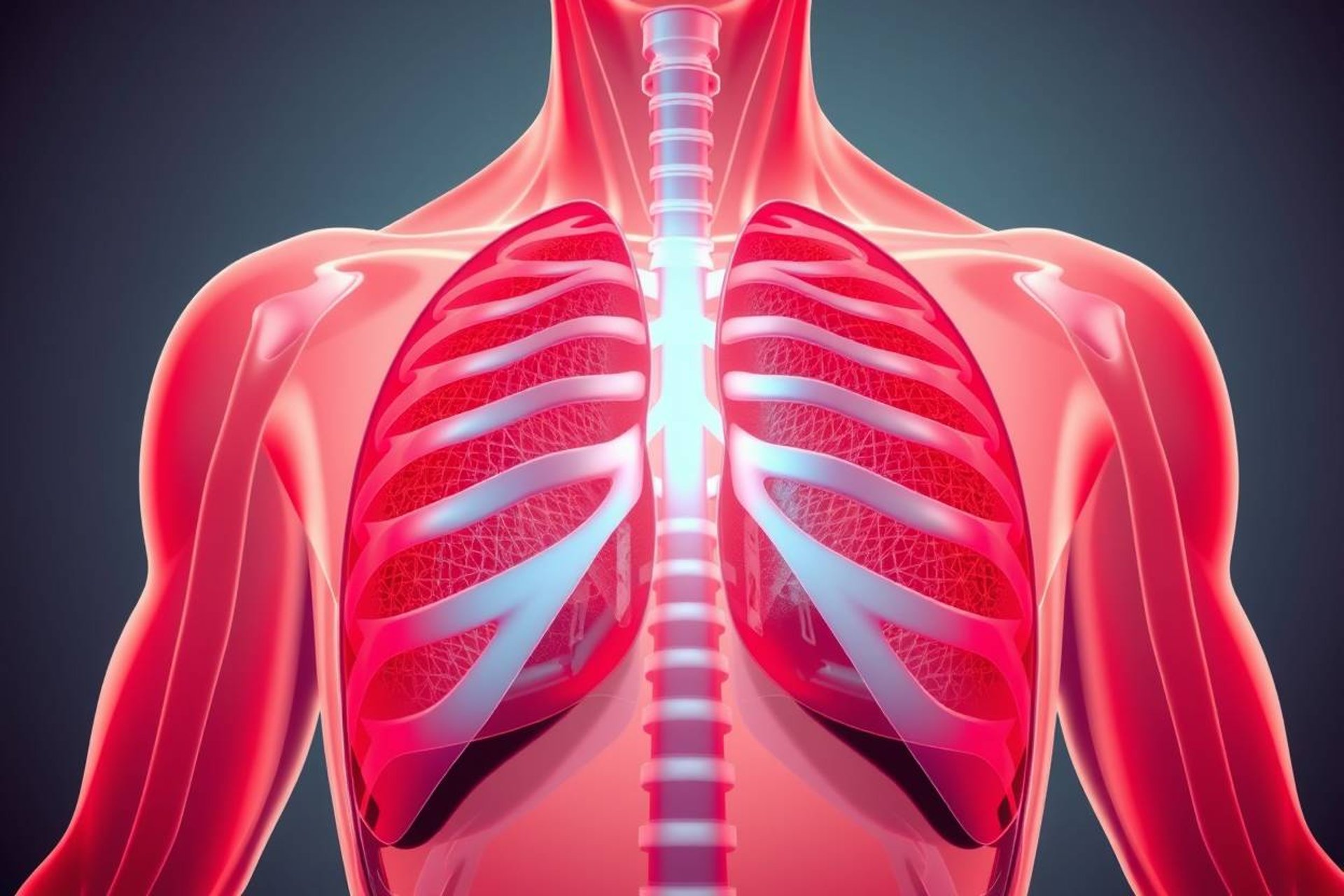Understanding Pneumonia: Causes, Symptoms, and Risk Factors

Understanding Pneumonia: Causes, Symptoms, and Risk Factors
Pneumonia is an infection that causes inflammation in one or both lungs. Imagine your lungs as sponges filled with tiny air sacs. When you have pneumonia, these air sacs, called alveoli, fill up with fluid or pus. This makes it harder for oxygen to get into your bloodstream, which your body needs to function.
Anyone can get pneumonia, but it tends to be more serious for very young children, older adults, and people who already have other health issues.
What Happens Inside Your Body?
Normally, your lungs are full of millions of these tiny air sacs that fill with air when you breathe. This is where oxygen enters your blood and carbon dioxide leaves.
When pneumonia strikes, these air sacs become swollen and filled with fluid, mucus, or pus. This means less air can get in, and less oxygen can get out. As a result, breathing becomes more difficult. Your body might not get enough oxygen, leading to feelings of shortness of breath, tiredness, or even confusion, especially in older adults.
The infection can start in your nose or throat and then travel down into your lungs. Sometimes, it begins directly in the lungs if you breathe in germs.
What Are the Signs and Symptoms?
The symptoms of pneumonia can differ based on your age, overall health, and what caused the infection. Here are some common signs to look out for:
Cough: Often with phlegm (mucus) that might be yellow, green, or even have traces of blood.
Fever: Sometimes accompanied by chills or sweating.
Breathing changes: Fast or shallow breathing.
Shortness of breath: Even when you're resting.
Chest pain: This pain can worsen when you take a deep breath or cough.
Fatigue: Feeling very tired or weak.
Confusion or dizziness: More common in older adults.
Loss of appetite.
In babies, symptoms might be less obvious and could include irritability, poor feeding, or a fever without a clear reason.
What Causes Pneumonia?
Pneumonia isn't caused by just one thing; it's a condition that can be triggered by various germs:
Viruses: Like the flu virus or the common cold virus, these are the most frequent cause, especially in children.
Bacteria: Such as Streptococcus pneumoniae, which often leads to more severe cases.
Fungi: These are rare causes and usually affect people with weakened immune systems.
Aspiration: This happens when food, drink, or vomit is accidentally breathed into the lungs, causing inflammation and infection.
Pneumonia can develop after you've had a cold or the flu, but it can also appear without any prior warning.
Who Is More Likely to Get Pneumonia?
Certain individuals are at a higher risk of developing pneumonia or experiencing serious complications:
Children under 2 years old.
Adults over 65.
People with ongoing lung conditions like asthma or COPD.
Those with heart disease, diabetes, or kidney disease.
Individuals with weakened immune systems due to conditions like cancer treatment, HIV, or long-term steroid use.
Smokers.
People who have recently had surgery or are on a ventilator.
Being in one of these groups doesn't mean you'll definitely get pneumonia, but if you do, it's more likely to become serious.
Is Pneumonia Contagious?
The germs that cause pneumonia, especially viruses and some bacteria, can spread from person to person through coughs, sneezes, or by touching contaminated surfaces.
However, pneumonia itself isn't directly contagious. You might catch the germ, but whether it develops into pneumonia depends on your body's ability to fight off the infection.
How Is It Diagnosed?
A doctor might suspect pneumonia based on your symptoms and by listening to your lungs with a stethoscope. A chest X-ray is often used to confirm the diagnosis. Blood tests or samples of your mucus might also be taken to identify the specific cause.
It's not always possible to pinpoint the exact cause, but treatment can still begin based on the most likely culprit.
Can Pneumonia Be Fatal?
Yes, in some cases, pneumonia can lead to serious complications, including:
Respiratory failure: When your lungs can't provide enough oxygen to your body.
Sepsis: A dangerous, body-wide response to an infection.
Fluid around the lungs: Known as pleural effusion.
Lung abscesses: Pockets of pus in the lungs.
These complications are uncommon in healthy individuals. They are more likely to occur in older adults, very young children, or those with other existing illnesses.
Most people recover completely with rest and proper care. Some may need hospital treatment. A small number of individuals, often those who are already very ill, may not survive.
Pneumonia is a serious illness that should not be ignored, but it is not always a death sentence.
Can You Prevent Pneumonia?
You can take steps to prevent some types of pneumonia:
Vaccines: Available for certain causes, such as pneumococcal bacteria and the flu virus.
Good handwashing: Helps reduce the spread of germs.
Not smoking: Protects your lungs.
Healthy lifestyle: Eating well and getting enough rest supports your immune system.
Prevention doesn't guarantee you won't get sick, but it significantly lowers your risk.
info@inspectordeepdive.com
© 2025 food.InspectorDeepDive.com. All rights reserved. Content may not be copied or republished without permission.
This article is for informational purposes only. InspectorDeepDive.com does not provide medical advice. Always consult a licensed healthcare provider before making dietary or health decisions.
